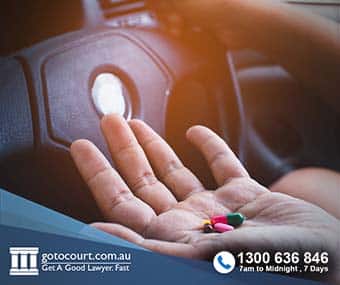Refusing a Blood Test in WA
Refusing a Blood Test in WA
In, Western Australia police have the power to subject drivers to tests to check for the presence of alcohol or drugs in their body. The Road Traffic Act 1974 sets out the procedures that police must follow when conducting breath, saliva and blood tests and the circumstances under which a person can refuse such a test. The penalties for refusing to provide a blood sample without a valid reason include fines and disqualification from driving. The offence of refusing a blood test in Western Australia is outlined in section 67 of the Road Traffic Act 1974.
When can the police require a blood test?
The police in Western Australia have the power to request a blood sample from an individual for the purposes of determining whether any drugs or alcohol are present within their system. This will typically occur after the person has already submitted to a breath test that returned a positive result or in circumstances where the breath test did not return a result. A police officer also has the right to request a blood sample if they reasonably believe that a person is under the influence of alcohol or any illicit substances.
If a blood test is requested, a medical professional must carry out the test with a sterile syringe within four hours of the alleged incident. Half of the sample must be provided to the alleged offender in the event that they wish to have their own sample tested independently. These requirements are set out in the Road Traffic (Blood Sampling and Analysis) Regulations 1975.
If you refuse a request to provide a blood sample, you will be in breach of the Act and may face penalties including a fine and/or licence disqualification. It is important to note that the law in Western Australia divides the offences of refusing to provide a blood sample depending on whether the sample was requested to check for alcohol or drugs.
Refusing a blood test for alcohol
Where an oral test has proven that the offender was responsible for the operation for a motor vehicle with a blood alcohol reading above the legal limit, the person may be requested to provide a blood sample under section 66 of the Road Traffic Act. Refusing to provide a blood sample under that provision is an offence under section 57 of the Road Traffic Act.
The penalty for a first offence is a fine of between 41 and 225 penalty units (depending on the person’s driving history) as well as disqualification from driving for a period of between nine and 30 months (depending on the person’s driving history).
The penalty for a second offence is a fine of between 95 and 158 penalty units or imprisonment for up to nine months.
The penalty for a subsequent offence is a fine of between 95 and 225 penalty units or imprisonment for up to 18 months.
Refusing a blood test for drugs
If a driver is believed to have been impaired by illicit drugs, they may be required to provide a blood sample under section 66B of the Road Traffic Act. Refusing to provide a blood sample under that provision is an offence under section 67AA of the Road Traffic Act.
The penalty for a first offence is a fine of between 34 and 75 penalty units.
The penalty for a second offence is a fine of between 63 and 105 penalty units or imprisonment for up to nine months.
The penalty for a subsequent offence is a fine of between 63 and 150 penalty units or imprisonment for up to 18 months.
Refusing a blood test after accident causing death
It is also important to note that if the motor vehicle in question was involved in an accident that caused death or grievous bodily harm to another, any refusal of the alleged offender to undertake a blood test may result in a fine of any amount and imprisonment for up to 14 years. This will also include a licence disqualification period of at least two years.
Defence
A person has a legal defence if there was a substantial reason that they refused to provide a blood sample. The legislation does not elaborate on what amounts to a substantial reasons; however, medical conditions that would be affected by the taking of blood are likely to be accepted.
If you require legal advice or representation in any legal matter, please contact Go To Court Lawyers.

Affordable Lawyers
Our Go To Court Lawyers will assist you in all areas of law. We specialise in providing legal advice urgently – at the time when you need it most. If you need a lawyer right now, today, we can help you – no matter where you are in Australia.How It Works




1. You speak directly to a lawyer
When you call the Go To Court Legal Hotline, you will be connected directly to a lawyer, every time.

2. Get your legal situation assessed
We determine the best way forward in your legal matter, free of charge. If you want to go ahead and book a face-to-face appointment, we will connect you with a specialist in your local area.

3. We arrange everything as needed
If you want to go ahead and book a fact-to-face appointment, we will connect you with a specialist in your local area no matter where you are and even at very short notice.



















